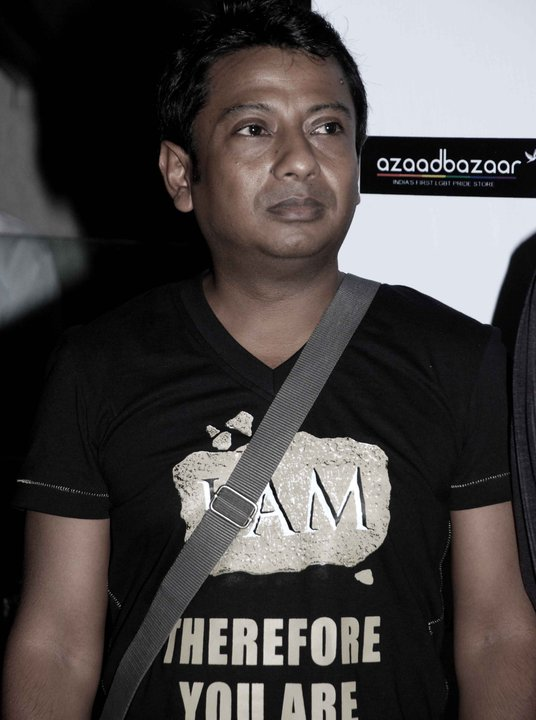 Anirban Dhar or Onir, as we know him now, makes disconcerting films that disturb the equanimity with which Hindi cinema is watched. They ask questions not all of us are willing to face or answer. The abiding sense of isolation running through his work is not romantic or self-indulgent. It instead takes us into the heart and mind of an ostracised AIDS patient in My Brother Nikhil… This was a film that Onir felt compelled to make when he stumbled upon the story of Dominic D’Souza, a champion swimmer from Goa. It was not an easy film to make and he concedes that he has never had the muscle of big studios behind his stories. The film turned out to be a seminal comment on homosexuality in Indian cinema.
Anirban Dhar or Onir, as we know him now, makes disconcerting films that disturb the equanimity with which Hindi cinema is watched. They ask questions not all of us are willing to face or answer. The abiding sense of isolation running through his work is not romantic or self-indulgent. It instead takes us into the heart and mind of an ostracised AIDS patient in My Brother Nikhil… This was a film that Onir felt compelled to make when he stumbled upon the story of Dominic D’Souza, a champion swimmer from Goa. It was not an easy film to make and he concedes that he has never had the muscle of big studios behind his stories. The film turned out to be a seminal comment on homosexuality in Indian cinema.
The story of a male protagonist who becomes a social outcast because of his sexuality and the nature of his disease, had never been told. Nor had the ‘hero’ ever been portrayed as a gay without being a caricature. Most of Onir’s characters since then have been outcasts in one way or another. Either because of the choices they make or because of what happens to them.
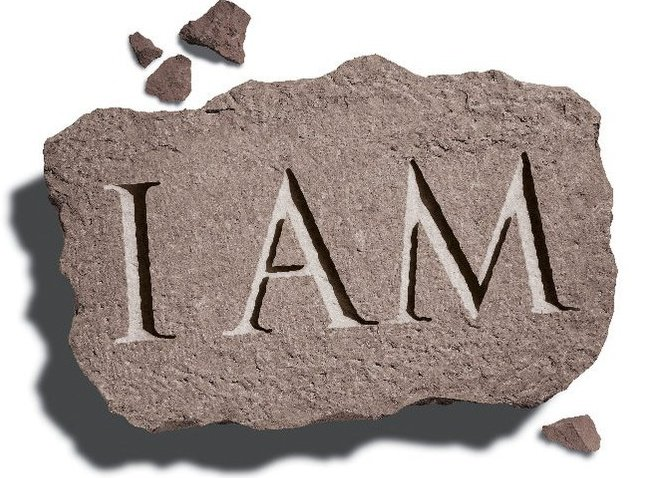 I AM is arguably his most meaningful work since My Brother Nikhil…because it has been shaped by the same need to tell unheard stories. Like Nikhil, the four protagonists of I AM are also fragmented and struggling to carve a whole and healed life. As also a fully inhabited sense of self. Omar, Megha, Afia and Abhimanyu are grappling with the loneliness of extreme exclusion either in a social, moral, geographical or personal realm.
I AM is arguably his most meaningful work since My Brother Nikhil…because it has been shaped by the same need to tell unheard stories. Like Nikhil, the four protagonists of I AM are also fragmented and struggling to carve a whole and healed life. As also a fully inhabited sense of self. Omar, Megha, Afia and Abhimanyu are grappling with the loneliness of extreme exclusion either in a social, moral, geographical or personal realm.
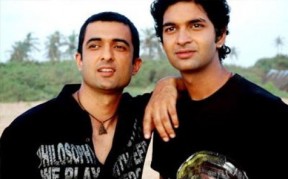 In a chat with Unboxed Writers, Onir however shares that telling alternate stories was never a conscious choice. Infact it is the stories that have always chosen him. But yes, he always attempts to treat the stories differently than usual. In My Brother Nikhil…, he exploded the cliche of a “pretend gay” and “normalised” the character though he concedes that the time when a homosexual hero will be mainstreamed in Hindi cinema, has not yet come.
In a chat with Unboxed Writers, Onir however shares that telling alternate stories was never a conscious choice. Infact it is the stories that have always chosen him. But yes, he always attempts to treat the stories differently than usual. In My Brother Nikhil…, he exploded the cliche of a “pretend gay” and “normalised” the character though he concedes that the time when a homosexual hero will be mainstreamed in Hindi cinema, has not yet come.
About the wounded spirits that frequently animate his cinematic canvasses, he says,” I don’t like being judgemental and I strongly believe that unless we accept and face the darkness within, we cannot come into the light. There is no conscious reaching out to the dark subtext in human relationships and in life but secrets intrigue me.”
Onir is not just concerned with soggy, individual secrets that debilitate people and keep them away from love and life. He believes that the shameful secrets that nations harbour, must be aired as well. He explains, “We speak of India Shining but this is a country where couples are beaten in public places for being in love, every second child is sexually abused (60 per cent kids in India are, say the statistics), small personal freedoms are taken away and unless we see these things for what they are, we cannot really pretend, we are shining.”
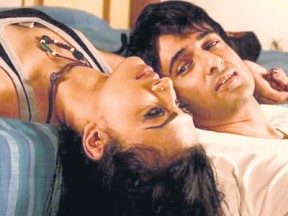 Most of the stories in I Am reference real lives and most of the issues they address, concern all of us. The story of Abhimanyu (played by Sanjay Suri) for instance is about the devastating aftershocks of sexual abuse and Onir says, “Abusing a child is the worst kind of crime and yet, people pretend it does not exist. Parents must start talking about these issues with their children. Sex education is still considered a bad word but we are unleashing the Internet and television programming on our kids without arming them with information that can protect them. By not acknowledging abuse when it happens, parents let their children down. From protectors, they become betrayers of the trust that a child has imposed in them.”
Most of the stories in I Am reference real lives and most of the issues they address, concern all of us. The story of Abhimanyu (played by Sanjay Suri) for instance is about the devastating aftershocks of sexual abuse and Onir says, “Abusing a child is the worst kind of crime and yet, people pretend it does not exist. Parents must start talking about these issues with their children. Sex education is still considered a bad word but we are unleashing the Internet and television programming on our kids without arming them with information that can protect them. By not acknowledging abuse when it happens, parents let their children down. From protectors, they become betrayers of the trust that a child has imposed in them.”
 In I AM, Nandita Das plays Afia, a single woman who wants to have a baby. Says Onir, “In our society, motherhood is made out to be the most fulfilling experience for a woman but if a single woman wants to have a child, suddenly, there is judgement and criticism. A woman’s body is her own, as are her choices or should be but things are not as simple.”
In I AM, Nandita Das plays Afia, a single woman who wants to have a baby. Says Onir, “In our society, motherhood is made out to be the most fulfilling experience for a woman but if a single woman wants to have a child, suddenly, there is judgement and criticism. A woman’s body is her own, as are her choices or should be but things are not as simple.”
Juhi Chawla plays Megha, a displaced Kashmiri Pandit and her story is inspired by Sanjay Suri who had to leave his home in Kashmir because of the political disquiet. Only Onir turns the story on its head by pitting two feminine perspectives against each other.
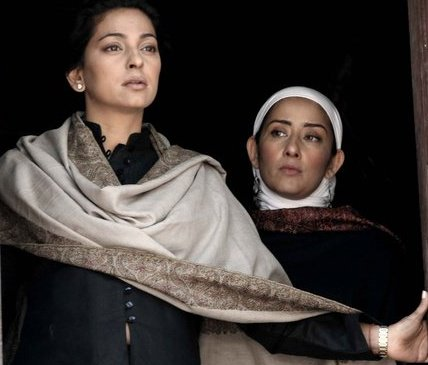 He says, “Women suffer the most in any kind of a crisis because their voices are never heard. It is the men who make decisions and control their political, public and personal choices. So the narrative is about the perspective of two Kashmiri women. One who has had to leave and another (played by Manisha Koirala) who is stagnating in a militancy-torn state.”
He says, “Women suffer the most in any kind of a crisis because their voices are never heard. It is the men who make decisions and control their political, public and personal choices. So the narrative is about the perspective of two Kashmiri women. One who has had to leave and another (played by Manisha Koirala) who is stagnating in a militancy-torn state.”
Onir and his family too had to leave their home in Bhutan during a political crisis and he says, “Whether you are forced to leave your home or you leave by choice, nothing can ever compensate for what is lost.”
In another story, 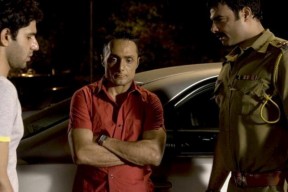 Rahul Bose plays Omar, a gay man craving for love and dignity in the face of the subversion of something as fundamental as a sexual choice. Onir shares, “We talk about how western culture is a bad influence but we as a nation once celebrated all forms of sexuality. Even temples celebrated love in all its manifestations but the imposition of Victorian prudishness turned love into something dirty. Have we really gained freedom when our minds and bodies are enslaved by regressive laws? Kissing in public is considered dirty but not defecating and urinating? We are okay with violence but not public displays of affection? Why should a man or a woman be denied the right to love? The State or society can’t rule your body but they do.”
Rahul Bose plays Omar, a gay man craving for love and dignity in the face of the subversion of something as fundamental as a sexual choice. Onir shares, “We talk about how western culture is a bad influence but we as a nation once celebrated all forms of sexuality. Even temples celebrated love in all its manifestations but the imposition of Victorian prudishness turned love into something dirty. Have we really gained freedom when our minds and bodies are enslaved by regressive laws? Kissing in public is considered dirty but not defecating and urinating? We are okay with violence but not public displays of affection? Why should a man or a woman be denied the right to love? The State or society can’t rule your body but they do.”
This clear-sightedness comes from the fact that Onir grew up in a family committed to truth, no matter how inconvenient. It was a family where equality was considered bigger than gender and everyone was treated with respect. Onir recalls, “Both my mother and father cooked and shared work in the kitchen. The women in my family are very strong and I grew up valuing the ideas of freedom, my own and that of others. I was very scared when I came to Kolkata as a student because it was a big town but I learnt soon enough that even though I had come from a smaller town, my mind, thanks to my upbringing, was very open.”
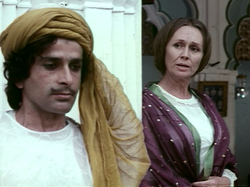 A lot of credit for that vibrant mind must go to his “film-addict” mother who he says, would drag the entire family every week to the only cinema hall in their town, to watch different kinds of cinema ranging from Deewar and Sholay to Aakrosh and Junoon.
A lot of credit for that vibrant mind must go to his “film-addict” mother who he says, would drag the entire family every week to the only cinema hall in their town, to watch different kinds of cinema ranging from Deewar and Sholay to Aakrosh and Junoon.
Shyam Benegal’s visceral Junoon ofcourse consumed him and there was that first niggle that told him that maybe this is what he wanted to do. Later in Kolkata at a film festival, he saw Satyajit Ray’s note perfect Charulata and Karel Reisz’s The French Lieutenant’s Woman and his mind was made up. A scholarship to study cinema in Berlin and then 10 years of working towards his first film gave Onir a certain sense of fate about his career as a film maker.
He says,”Today, I have a certain body of work and that is why the idea of I AM could reach out to so many people.” Using social networking as a tool, I AM was produced with more than 400 people across 35 different cities in the world and is the first “crowd-sourced” film of its kind. In a way, for the first time, ‘ordinary’ people do not just have a narrative stake in the film but also an emotional one because it is their film in more ways than one.
Onir sums up, “I AM was inspired by Rabindranath Tagore’s poem,
“Where the mind is without fear and the head is held high.
Where knowledge is free
Where the world has not been broken up into fragments
By narrow domestic walls..
Where words come out from the depth of truth…”
and all four stories though different are connected by the same struggle to just be. The characters are not asking for big things but simple things like a home, love, family, the freedom to live without repression and with dignity.”
And a country that denies these freedoms to some or most of us, cannot look itself in the eye and say, ” I am awake.”
I Am opens on April 29, 2011.
Reema Moudgil is the author of Perfect Eight. (http://www.flipkart.com/perfect-eight-reema-moudgil-book-9380032870) . More on Story Wallahs. Other books by Unboxed Writers in our Store.






What a wonderful insight! Am really looking forward to the movie …
We were there for the shoot of I am Abhimanyu. Our cats acted in the movie :). It was my first and perhaps only experience of a film shoot. I must say that Onir and Sanjay are such fantastic people. No bollywood airs, no hero-director tantrums, nothing. Instead we were pampered, fed and looked after so well just because our cats were a part of the cast!
🙂 That was my comment above. But JP I am sure will also tell you that we had a super time 🙂